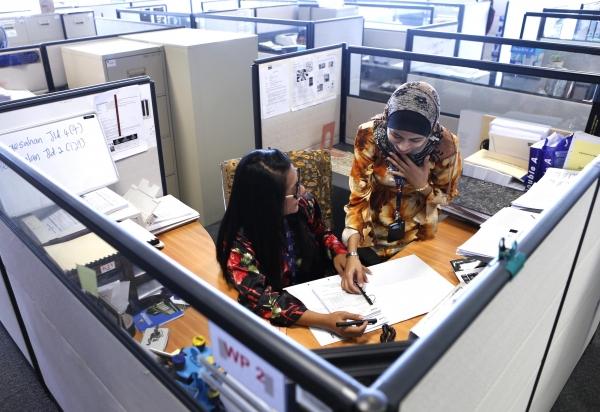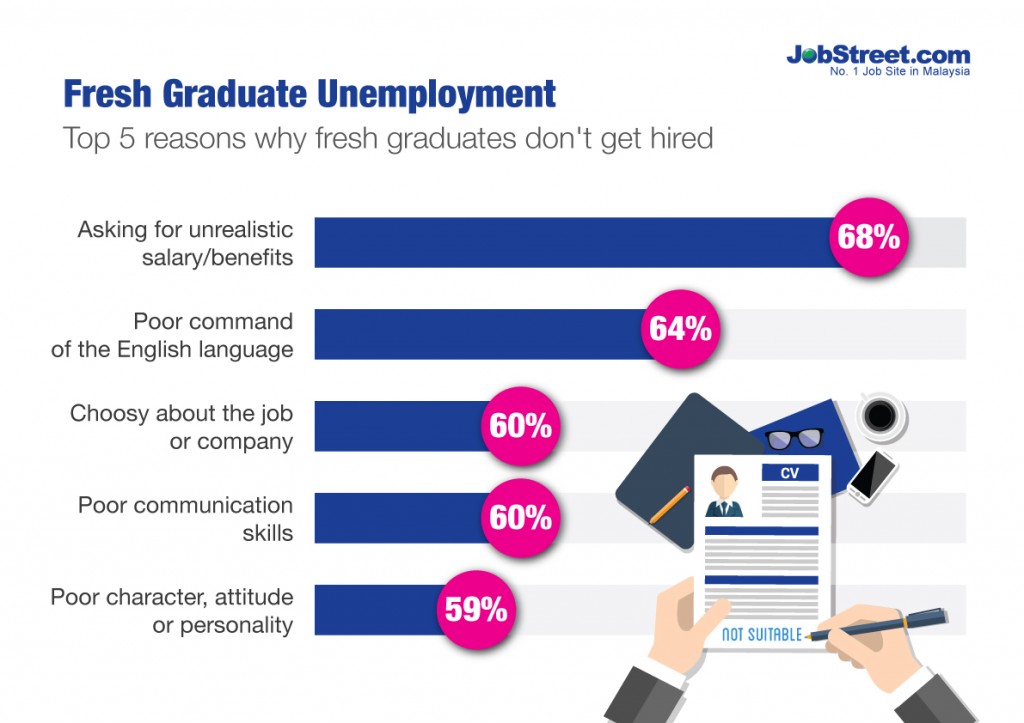The Problem With Young Malaysian Graduates According To Hiring Managers
While Gen Y recruits are starting to flood the workforce, they are bringing along work attitudes that are worrying hiring managers.
They may score good grades for English, but have poor to no grasp of the English language coupled with abysmal communication skills
According to Malaysian Employers Federation (MEF) Executive Director, Datuk Shamsuddin Bardan, while school graduates might have SPM (Sijil Pelajaran Malaysia) English grades of A and B, they can't even hold a conversation in English.
He cited a survey from a few years ago among MEF's members which had found that 60% of them identified low English proficiency as the main problem with young recruits.
"The inability to converse and understand English (among young school leavers) is a constant complaint among our members," Shamsuddin told The Malaysian Insider.
And it's not just Shamsuddin, KL-born Christopher Raj, who is the President of the Association of Hotel Employers (AHE), echoes his concern. He said that out of 10 job applicants in the hospitality sector, 8 or 9 could not speak English.
"The problem is bad not only among school leavers but also graduates from our local universities. You ask them in English and they answer in Bahasa Malaysia," said Christopher, who has been in the hotel industry for more than 33 years.
In fact, a survey in September 2013 by JobStreet.com found that a staggering 55% of senior managers and companies said that poor command of the English language was the main reason for unemployment among undergraduates.
The second problem, according to Christopher, who is also the board member of the MEF Academy, is that employees in their 20s not only cannot handle stress well, they can't work themselves up from the bottom despite being impatient to get to the top
"Graduates these days come from colleges and immediately want to become managers, without even any experience. You can't scold them and they can't handle stress," Christopher was quoted as saying by The Malaysian Insider.
In fact, surveys among employers and trade groups in Malaysia have also revealed that these "Gen Y recruits" are simply not impressed with job benefits like medical insurance and bonuses
Instead, they want instant cash rewards. And in their preference for immediate performance-based cash rewards, these Gen Y recruits fail to see the long-term job benefits, something that the previous generations truly valued.
"Recruits in their 20s, the so-called generation Y, are restless compared with their elders. They have their eyes on the now instead of the future. They are less attracted to benefits such as annual bonuses, medical benefits, retirement. In fact, they want annual bonuses portioned out on a monthly basis," Datuk Shamsuddin said.
The other, and a more pertinent problem, according to a 2015 survey is that fresh graduates have unrealistic salary expectations
On the other hand, a school education group called Parent Action Group for Education (PAGE) believes that Malaysia's flip-flopping education policy is encouraging these attitudes among job-seekers
This damning indictment of young job-seekers' attitudes is in large part due to the education policy in previous years that reduced the importance of the English language.
According to a report in The New York Times, the Malaysian Government abandoned the Policy of Teaching Science and Mathematics in English (PPSMI) in July 2009, saying that it had failed to improve student grades. Instead, it decided to revert to using Bahasa Malaysia to teach science and maths 2012 onwards.
The Policy of Teaching Science and Mathematics in English (PPSMI) was introduced in January 2003. The decision to abandon it proved disruptive to students.
The decision was mainly due to the months of lobbying by Malay nationalists and was largely viewed as a political decision by local commentators, the NYT report said.
In fact, PAGE argues that this flip-flopping of policies has created a "lost generation" of young adults whose command over English is weaker than previous generations and who will miss the changes in schools that will benefit future generations.
"Which is why we were excited when the government decided to teach mathematics and science in English (PPSMI), as we felt this could boost their command of English. Unfortunately, it was cancelled after seven years when we should have allowed it to continue for 14 to 15 years to see the results," said PAGE Chairman Datin Noor Azimah.
"Proficiency in any language is about practising. PPSMI created more opportunities for students to practise," Noor Azimah added.
PAGE has campaigned for the government to allow schools to continue the PPSMI.



